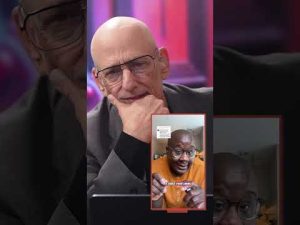In the world of politics, where words are often wielded like weapons and agendas take center stage, one figure is stepping up to the plate and swinging hard at the absurdities of progressive ideology. Pete Heth has boldly taken on the challenge of exposing wokeness and its detrimental effects on our military. With a mix of insight and humor, he dismantles the misguided concepts of Diversity, Equity, and Inclusion (DEI) and Critical Race Theory (CRT), which are not only fogging up our national defense but also leaving a trail of confusion and division in their wake.
First up, Heth argues, it’s time to roll up our sleeves and yank DEI and CRT initiatives right out of our military institutions—roots and branches! He insists that the top brass in Army, Navy, Air Force, and relevant civilian positions need to align with priorities that truly reflect the mission of national defense. Imagine how heroic it would be if our leaders actually prioritized combat readiness over social agendas! The country needs warriors, not social experimenters, and Heth’s call to arms is directed squarely at those in charge to send a clear message: when safety is at stake, equity should take a backseat to equality.
There’s an alarming twist in this narrative, as Heth points out that while equality is about treating individuals fairly—regardless of race or gender—equity gets tangled up in the weeds of identity politics. It’s as if some folks believe that the military should be determined not by skill, courage, or the ability to operate a tank effectively, but rather by how many diversity quotas can be met. Imagine troops sizing each other up based on their social identifier badges! Instead of fostering camaraderie and trust, this approach only serves to distract from the true purpose of military service.
Heth paints a vivid picture of how this misguided focus has the potential to crush morale. When service members feel they’re being judged not by their prowess but by the color of their skin or gender, it breeds resentment and division. Picture a soldier sweating it out under the scorching sun, only to be reminded that their worth is more about fitting into a predefined box than their aptitude on the battlefield. That’s a recipe for disaster. Heth’s humor cuts through the seriousness of the issue, making it clear that the only thing more toxic than a wounded ego is a wounded force.
As we move further into this era of unorthodox military management, one can only hope that our leaders will heed Heth’s advice before things really spiral out of control. The military should be a place where individuals are recognized for their capabilities, not segmented into groups based on identity traits. In the end, it comes down to a classic case of right and wrong: should our fighting forces be run like a social experiment or as a unified front ready to protect our freedoms? Heth makes a compelling case for the latter, encouraging us all to reflect on what truly makes a great military: unity in purpose and commitment to excellence.
So, while the left might argue that their woke policies foster inclusivity, Heth stands firmly on the opposing side, declaring that true inclusion is about acknowledging each service member’s individual worth. When it comes to defending our country, let’s make sure we’re not just checking boxes or chasing trends but focusing instead on what really matters: loyalty, bravery, and a good haircut—or at least, that legendary buzz cut.







